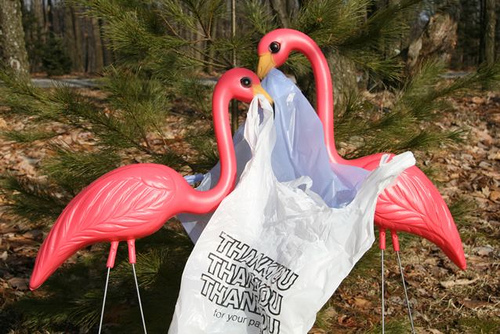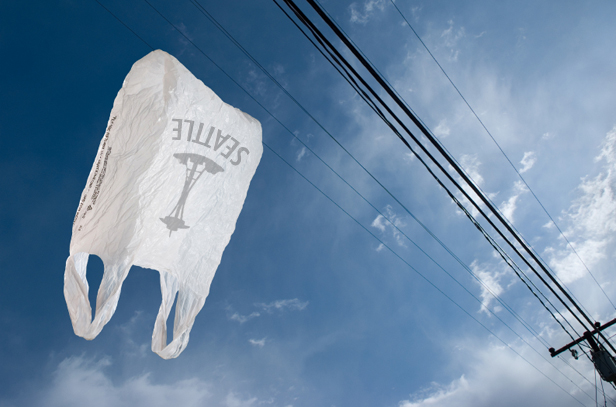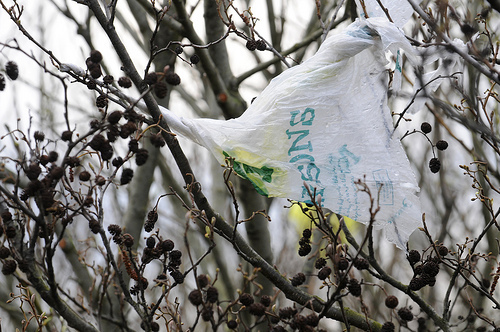
Seattle voters will decide on Aug. 18 whether to impose a 20-cent fee on all paper and plastic bags from grocery, drug, and convenience stores. But it’s not the first U.S. city to restrict disposable bags — nor even the first in Washington state.
In Edmonds, Wash., north of Seattle, the city council voted in late July to ban disposable plastic bags at retail outlets (excluding those used for produce and bulk foods). The ban will go into effect next year.
Even green-leaning western Washington is behind the times in comparison with San Francisco, which enacted the nation’s first ban on plastic bags at grocery and drug stores in 2007. The city council in Oakland, Calif., also voted in 2007 to impose a ban on the bags, but the plastic-bag industry has tied the measure up in court.
Other bag-hostile California cities include Palo Alto, Calif., where a plastic-bag ban is set to go into effect this September, and Los Angeles, which will begin banning plastic bags in July 2010.
Maui, Hawaii, will start banning plastic bags in 2011. A smattering of other cities around the U.S. are also considering bans.
But on the global stage, plastic-bag restrictions are hardly new.
In 1989, Italy took a look around its beaches and saw plastic bags cluttering the scenery and choking dolphins. To help clear up the mess, the Italian government began taxing plastic bags, and next year it will institute an all-out ban on them.
After bag-clogged drains led to prolonged flooding in Dhaka, Bangladesh, in 1988 and 1998, the government banished disposable plastic bags from the city in 2002.
Lethal floods blamed on bag-clogged drains have also prompted a number of city and state governments in India to impose plastic-bag bans.
In 2002, Ireland became the first European nation to tackle the plastic-bag problem. It imposed a 15-cent PlasTax, revolutionizing the Irish shopping scene with reusable sacks and reducing the use of flimsy plastic ones by 90 percent within weeks.
In South Africa, plastic bags were such a ubiquitous scourge that they became known as the “national flower” until the nation banned them in 2003. Eritrea, Rwanda, and Somalia followed suit in 2005, and Tanzania in 2006.
In Kenya, Nobel Peace Prize winner Wangari Mathaai blamed plastic bags for helping to spread malaria because discarded bags can fill with rainwater and become a breeding ground for mosquitoes. Her country banned thin plastic bags in 2007 and imposed fines on thicker ones. Uganda followed its lead.
In China, where up to 3 billion plastic bags were being used per day, the government in 2008 banned super-thin plastic bags and imposed fees on thicker ones.
South Australia hopped on the “ban” wagon this year, threatening fines of up to $5,000 for stores that don’t comply. The rest of Australia is considering a similar ban.
Find out more about bag bans around the world from Planet Ark, the BBC, and National Geographic News.



